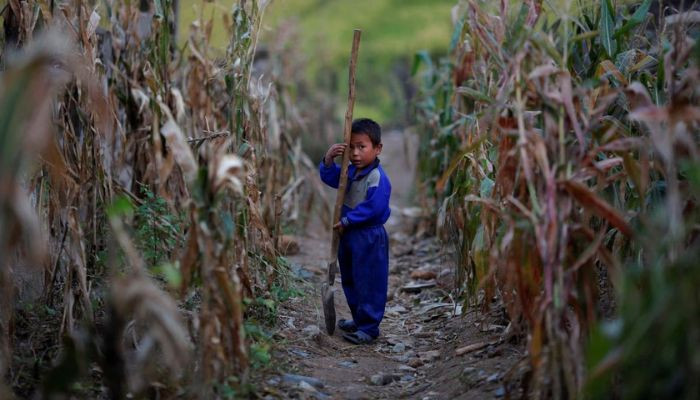SEOUL: North Korea’s official newspaper said on Wednesday that relying on external aid to cope with food shortages would be equal to taking “poisoned candy”, urging economic self-reliance despite deepening hardships amid sanctions and coronavirus lockdowns.
The isolated country has suffered food shortages in recent years, reeling from floods and typhoons, international sanctions aimed at curbing its nuclear and missile programmes, and a sharp cut in trade with China due to border closures and COVID-19 lockdowns.
Most UN agencies and Western relief groups have since left North Korea, with China remaining one of the few sources of external food assistance.
In a commentary, the ruling Workers’ Party paper Rodong Sinmun warned against receiving economic help from “imperialists” who use aid as a “trap to plunder and subjugate” recipient countries and interfere with their internal politics.
“It is a mistake to try to boost the economy by accepting and eating this poisoned candy,” the commentary said.
The article came as South Korea’s Yonhap news agency reported on Wednesday that some 700 inmates at three countryside prisons, including in the central city of Kaechon, have died from famine and diseases over the past two years, citing an unnamed source.
Seoul’s Unification Ministry, which handles inter-Korea affairs, declined to comment on the report, but said on Tuesday that there appeared to have been a recent increase in deaths from starvation in some North Korean provinces.
“Food production dropped from last year, and there is a possibility of distribution issues due to a change in their food supply and distribution policy,” a ministry official told reporters.
South Korea’s rural development agency in December estimated the North’s crop production at around 4.5 million tonnes last year, 3.8% down from 2021, citing heavy summer rains and other weather conditions.
Unification Minister Kwon Young-se has said Pyongyang had asked the UN food agency, the World Food Programme, to provide support but there was no progress because of differences over monitoring issues. The agency has not responded to a request for comment.

